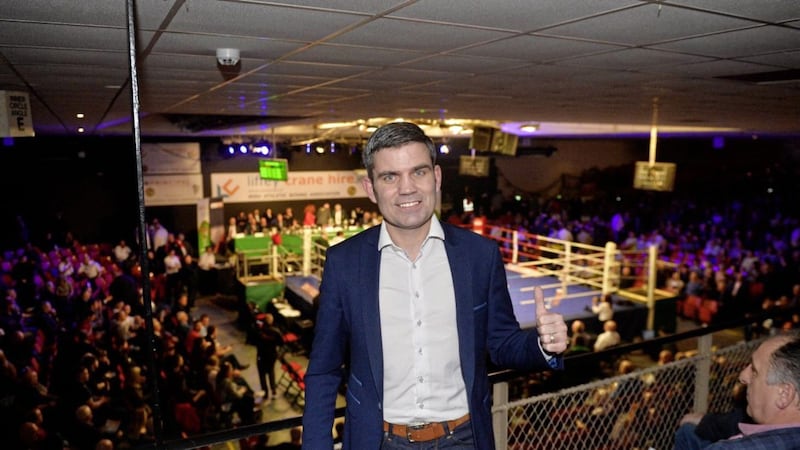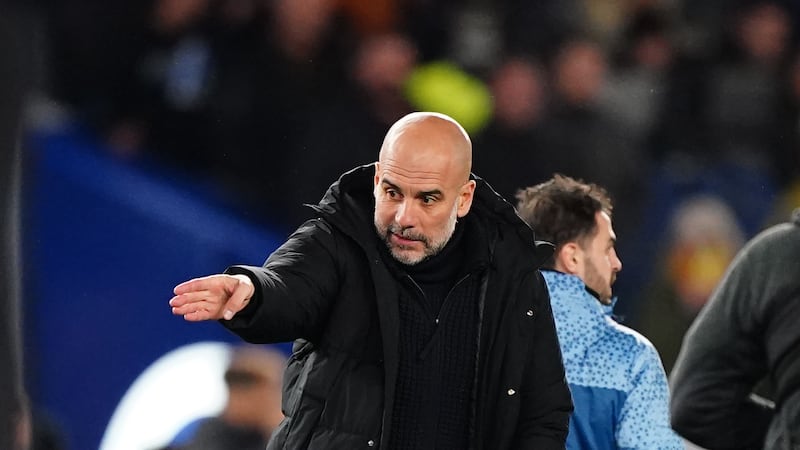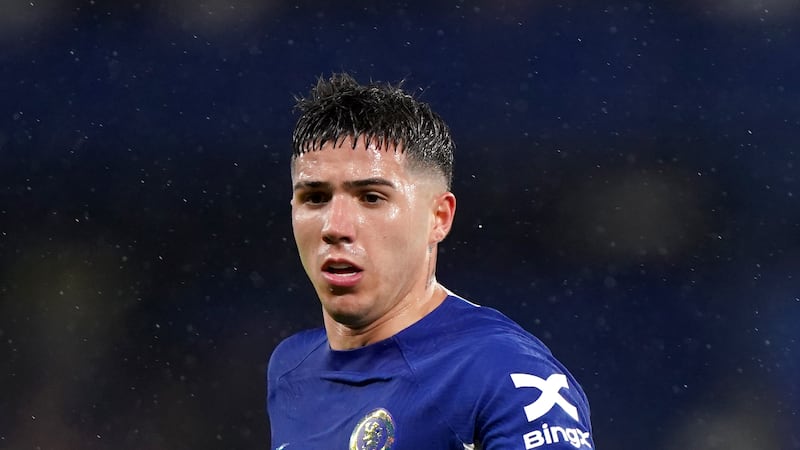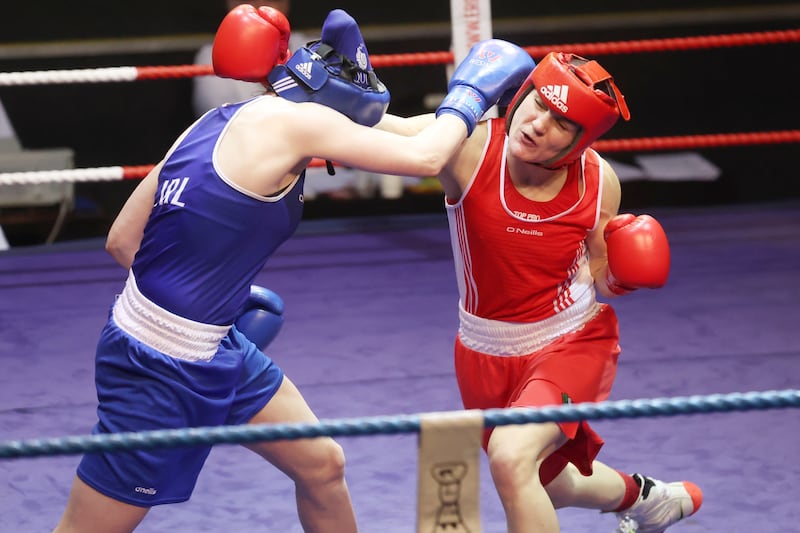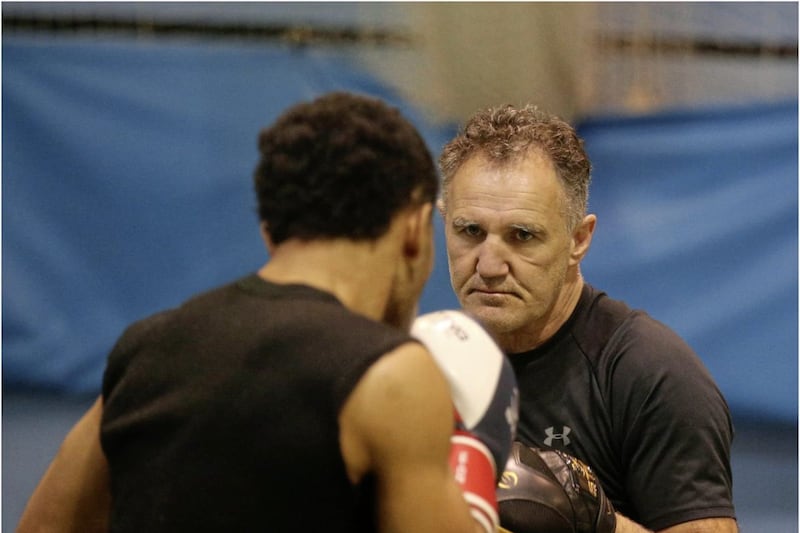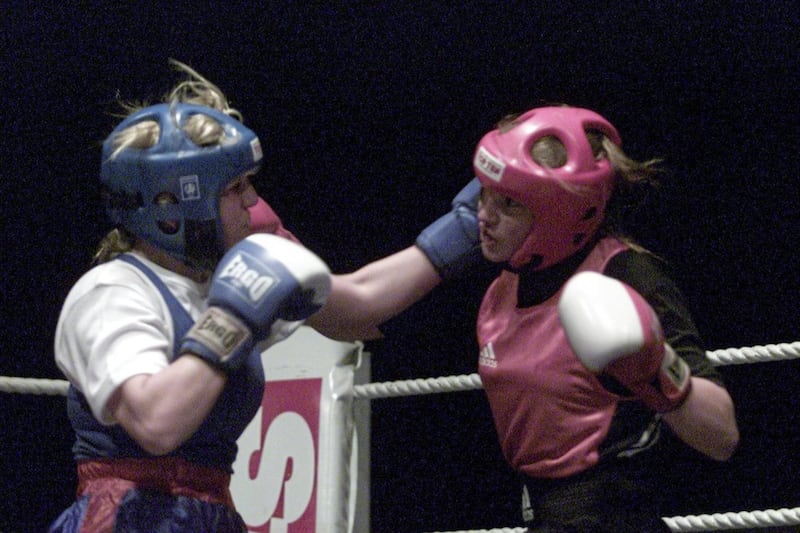“I WAS never beaten in this country. I never lost an amateur bout here, national or international... I won every national title straight through.” It is for obvious reasons, then, that the National Stadium retains a special place in Bernard Dunne’s affections.
Brought up on stories about his father Brendan, who represented Ireland at the 1976 Olympics in Montreal, boxing was all Dunne ever knew. He wanted to get to the Olympics too, and so nearly did when just missing out on the Sydney Games in 2000.
Instead, it was in the professional ranks where the likeable Dubliner would strike gold, landing the world super-bantamweight title with an unforgettable Rocky-style victory over Ricardo Cordoba 10 years ago.
Yet it could all have been so different. Dunne laughs about it now, but one of memory of the National Stadium is not particularly fond.
Leaving the venue after an early morning weigh-in for the Irish junior championships, he hopped on the back of his dad’s motorbike before heading down South Circular Road. It was then that events took on a life of their own.
“Dad used to drive a Honda 50; it was handy for him to get around,” smiles Dunne, taking up the tale.
“We had just come out of the stadium and were going to get breakfast. As we were driving down the road a car pulled out in front of us and stopped right in the middle of the road in front of us; the driver said they didn’t see us coming.
“I was 13 or 14, came off the bike, hit the top of the roof and went over the car. Dad ended up on the bonnet.
“Thankfully I just ended up with a badly bruised right knee and a sore right hand.
“I got physiotherapy that day and ended up boxing in the stadium that evening with a heavily bandaged knee for that championship.
“I was lucky I made it to the stadium at all that day, and I boxed that championship with a dodgy leg and a sore right hand.”
Naturally enough, Dunne ended up winning the whole thing regardless.
Once he was between those ropes, it felt like home – and it’s hardly any wonder considering how familiar he was with the stadium as a kid.
“I’ve been in boxing since I was five, I had my first fight at six and my first fight at the stadium when I was 11, fighting at the Ringside club out the back.
“I remember the smoke filling the place, just this cloud of smoke drifting around the room.
I was lucky enough I was so small my head never reached the cloud where some of the big guys had to fight through it.
“I was always excited to get into the ring; the ring was the place where I wanted to be. I was as comfortable being in a boxing ring as I was in my sitting room. With my dad having boxed in the Olympics and my two older brothers boxing, I was always surrounded by it.
“Every one of my national titles was won there, my first senior international against England was in there – I knocked out Levi Patterson in the second round - and my very first professional fight in Ireland was in the National Stadium.
“It’s the home of many big nights for me; I fulfilled many ambitions in that arena.”
There are some odd memories that have stayed with him too from his days on Irish squads, and none moreso than the treatment of coach Nicolas Cruz.
The Cuban had played a key part as Michael Carruth (gold) and Wayne McCullough (silver) both medalled at the Barcelona Olympics in 1992, yet by the late 1990s he was operating as some bizarre coach/janitor/dogsbody hybrid.
It was a situation that brought him to the brink and, as Cruz told The Irish News back in 2016, he would eventually find himself pulling pints at the Ringside club, sweeping the floors after bingo and working doors at the weekend just to make ends meet.
Only the generosity of a friend from Mayo, Joe Lavelle, stopped him having to sleep on the floor as he sent a bed and mattress from Belmullet to the National Stadium, where Cruz slept.
“I remember training across the road in the national gym and then walking across into the Ringside to get our lunch. This was back in Nicolas Cruz’s day,” recalls Dunne.
“He was the head coach then, but it was very strange because he used to train us, we’d go across the road and eat our food, then Nicolas would come in and he’d be cleaning up the place, waiting on the tables…
“I don’t know, it was a strange situation. He’d be training you one minute then clearing up after you the next.”
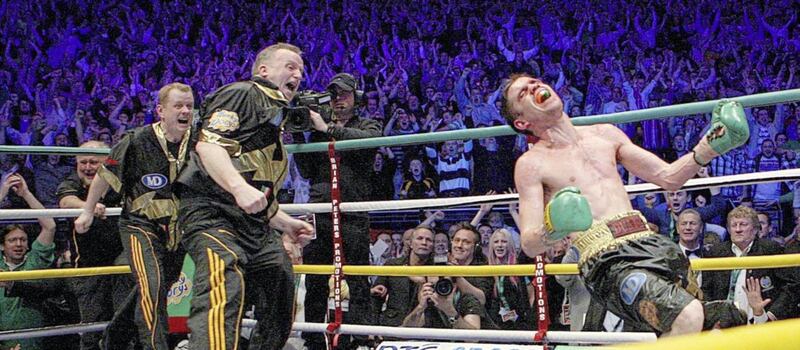
The dream of following in his father’s Olympic footsteps may not have materialised, but as a pro Bernard Dunne looked to the manor born.
After training under Freddie Roach at the famous Wildcard Gym in Los Angeles, Dunne won his first 14 fights Stateside before returning to Ireland in 2005.
After hooking up with promoter Brian Peters, his next three fights were all at the National Stadium, while he featured there another three times before hanging up the gloves in 2009, his 100 per cent record at the venue remaining intact.
A decade on, and Dunne is regularly back there but in a different guise, having been appointed as the Irish Athletic Boxing Association’s high performance director in April 2017.
Before he came on board, the IABA had already shifted part of its operation away from the stadium and into the ultra-modern environs of the Abbotstown sports campus. It’s a different world to the one in which Dunne was brought up, but he still feels the National Stadium has a part to play for future generations.
“It’s the home of Irish boxing for now,” he said.
“If I was an amateur boxer now, it’s the place I’d want to be fighting. It’s a very special place for me and I think younger people coming through now, as much as boxing has grown as a sport all over the country, the home of amateur boxing is still the National Stadium.
“It’s different; it has a very different atmosphere, there’s a different feeling when you fight at the National Stadium than when you fight on a local club show or a different venue.
“You get a real sense of the people who went before you, of the history inside it. You think of Charlie Nash, Michael Carruth, Fred Tiedt... the list goes on and on, some fantastic names have come through that arena.
“Like, I remember going down there when the Cubans all came over. That was probably in the late ’80s. There was a real buzz about getting to meet them, and they were handing out badges to all the young kids.
“Events like that are special and the more we grow the sport here the bigger the potential there is to keep bringing these people back.”
The reality is that, as it celebrates its 80th birthday, the long-term future of the National Stadium is unsure. It occupies a prime piece of real estate in central Dublin, and it would take a considerable amount of work to bring it up to the standards of the modern day.
Will it still be there in another 20 years, never mind another 80 years? Only time will tell.
“That’s an interesting question and probably not one I’ve thought on,” admits Dunne.
“In a world where everybody’s building on everything, it’s in prime position for people to make offers for it, but it would be very strange to see anything there other than boxing.
“I think for the immediate future it’s going to continue being the home of Irish boxing. It’s a fantastic venue and a fantastic spot to show off to visiting nations that we have our very own, purpose-built national boxing stadium.
“Whatever the association decide to do with it in the future, that’s something I suppose I can’t control, but I’d like to see it stay in control of the IABA and its members.”
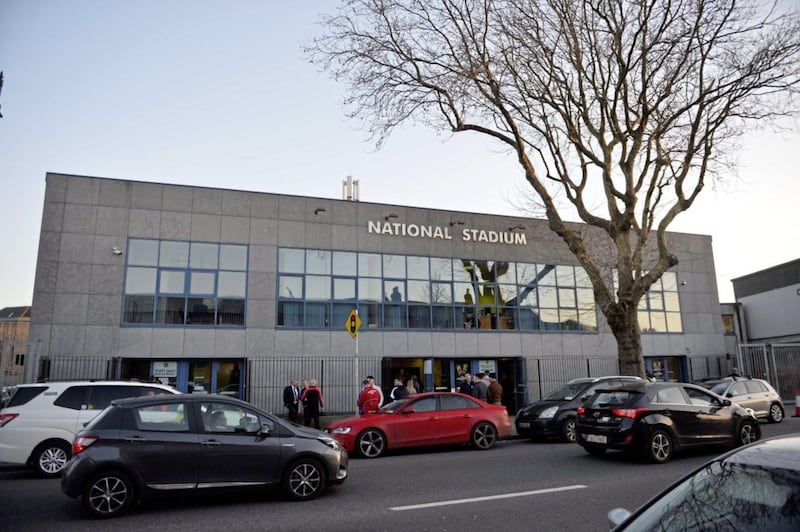
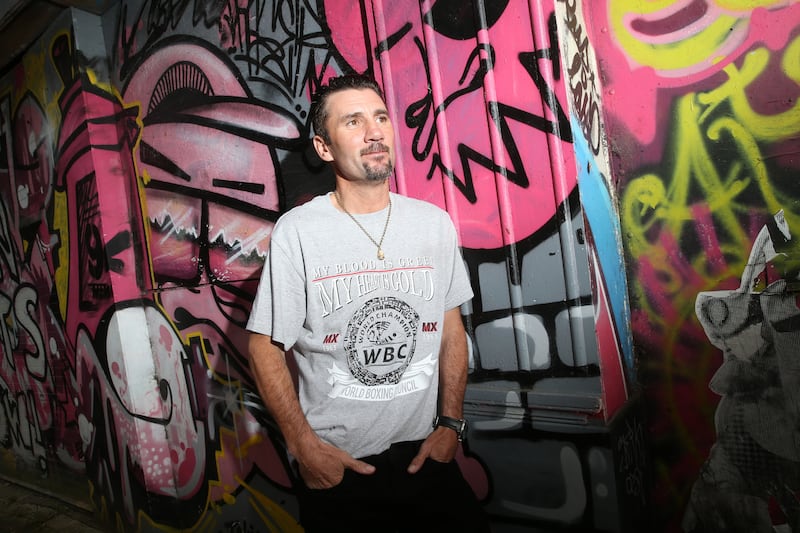
'THE RING WAS LIKE A FOOTBALL PITCH TO ME': MAGIC MEMORIES OF THE STADIUM
WAYNE McCULLOUGH
MOST of my amateur career was fought in the stadium. The first year I turned senior at 17 I went there and stopped the champion, and I was awarded the best boxer of the tournament.
The years 1987-88 were good there as I won Irish titles in the youth, U18, junior and senior all within a year; I came from out of nowhere and unexpectedly won all these. I also won Irish senior titles in three weight classes – light-fly, fly and bantam.
The ring was like a football pitch to me as it was massive, but I always found a way to make it feel smaller to my opponent with my style. I haven’t been inside the stadium since the end of ’91, and it was pretty run down then, no showers but it’s been fixed up since.
I have great memories fighting for the national team against different countries and making friends for life.
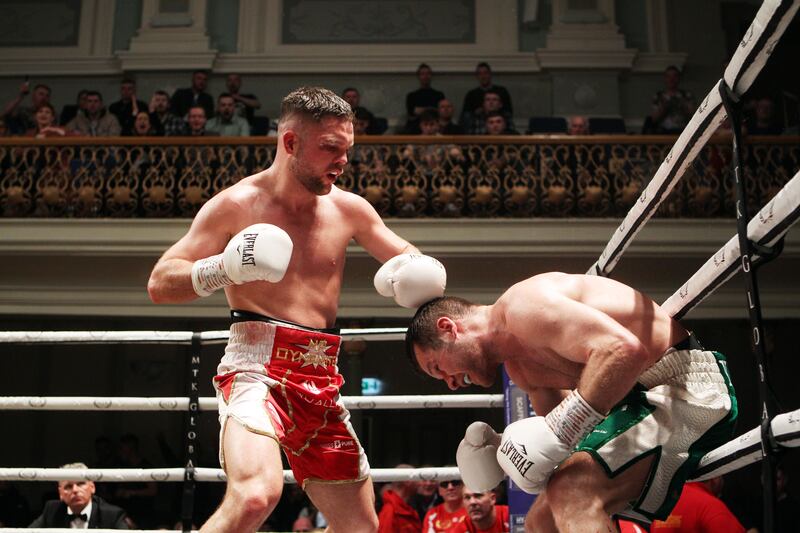
CONRAD CUMMINGS
AH, there’s memories good and bad. The one that stands out probably is when I fought Darren O’Neill. I was 18, he was Irish Olympic captain, number three in the world, I was a wee country lad who trained at home with my da.
I went down to Dublin, was winning the fight by a point all the way and in the last round, he hit me with a shot that should have brought him level but instead he went a point ahead – then they rang the bell a minute and two seconds early.
After 12 minutes of the gloves being off, headgear being off, we put them back on and fought for another minute. It was like something from a film. At this stage the computers weren’t turned back on, and I beat him from pillar to post for a minute but never won, got beat by a point.
He went on to captain Ireland at the Olympics. That’s a negative story but I take great pride in some sort of a weird way.
I also fought Jason Quigley the year he won gold in the Europeans. I got a public warning in the first round for him jumping on top of me and me throwing him off, and in the last round for a clash of heads. So that was four points I lost, and I only lost by a couple of points and he ended up going on to European gold.
So I was very close but also very far away. They’re exciting memories, and there’s lots of other good memories there, winning numerous Irish titles. I captained Ireland in a round robin with Germany, France and Sweden.
Also, Bernard Roe beat me twice as a lad, I fought him then in two Irish finals In the one year and beat him twice – he never boxed again as an amateur.
That probably tells you something about me as a person – I always get there in the end. Thinking about the stadium, there’s memories both good and bad, but they’re memories for life either way.
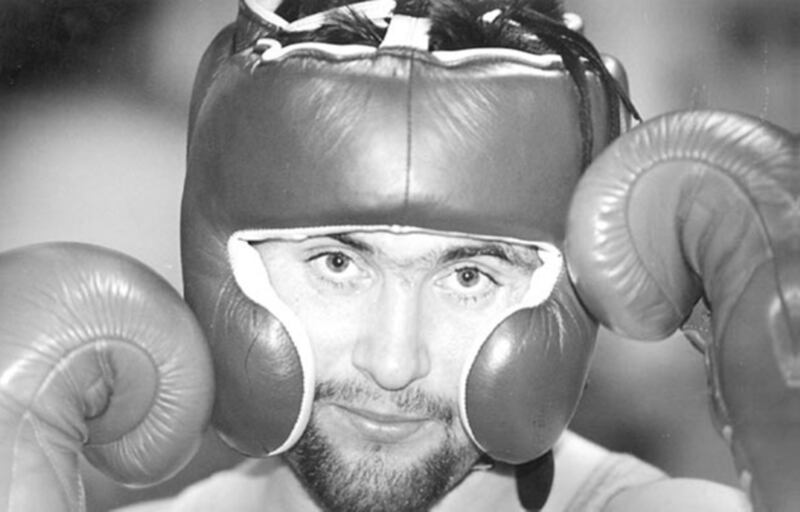
DARREN CORBETT
THE first time I ever went to the stadium as a 16-year-old it was frightening; it was a big arena that was freezing, and that's what I did - froze in front of the crowd.
From then on though I thrived on the crowd, and won my first Irish title two weeks later. I won the U18 title, then the juniors and seniors, so I ended up loving boxing in the stadium; it became home.
The best feeling was boxing for Ireland against England. I fought the ABA champion and knocked him out in the first round. It was unreal.
Hearing your national anthem playing in the best country in the world was unreal too, and I even lucky enough to box there when I was a pro. It was amazing.
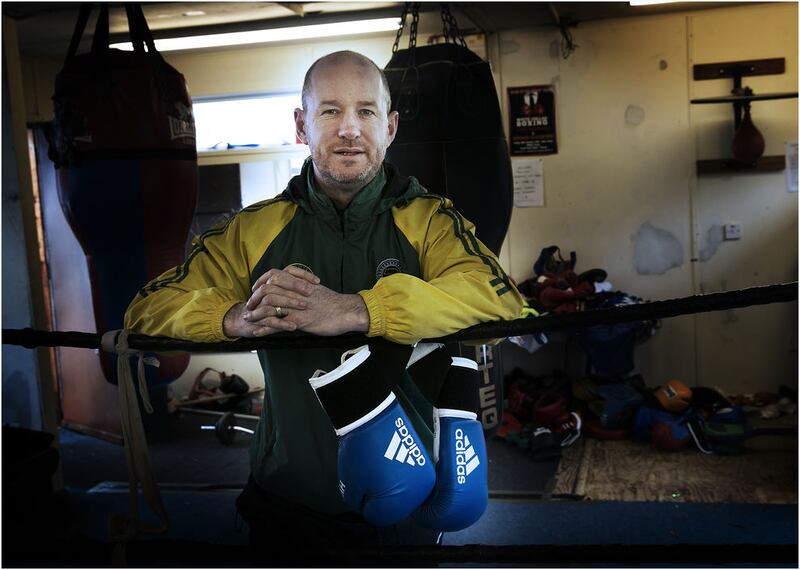
ADRIAN PATTERSON
MY BEST memory is watching Damaen Kelly beat the Cuban number one, Waldemar Font, in the World Challenge Cup, as well as the night Brian Magee beat Denis Galvin.
Also, which Newry man who was in an Irish final picked up the best boxer award but didn’t actually box?! In 1987 Paddy Devlin was refereeing in a couple of the finals, I got the best boxer award but I was gone home and didn’t know anything about it until Paddy arrived at my door that night as he had picked it up for me.
